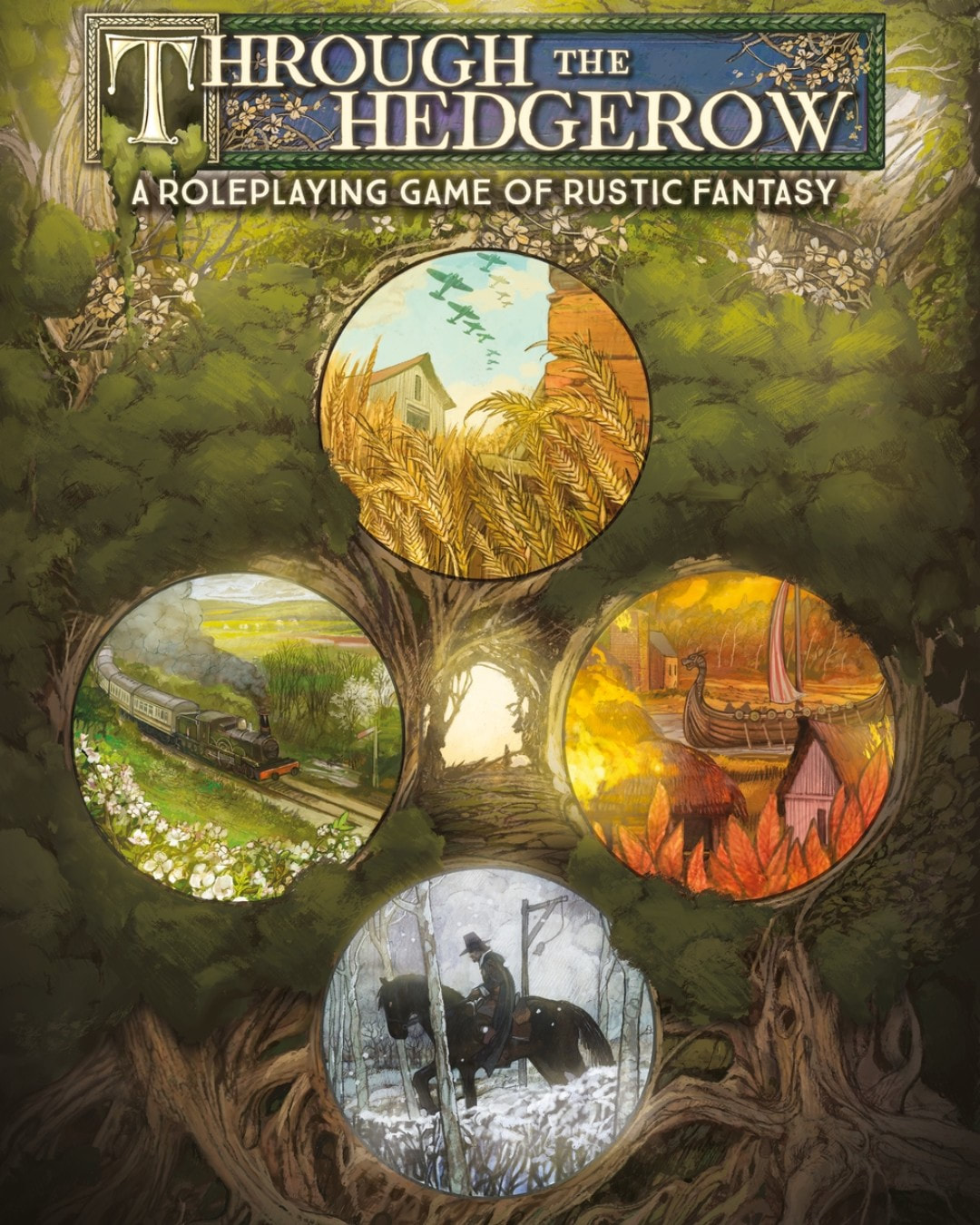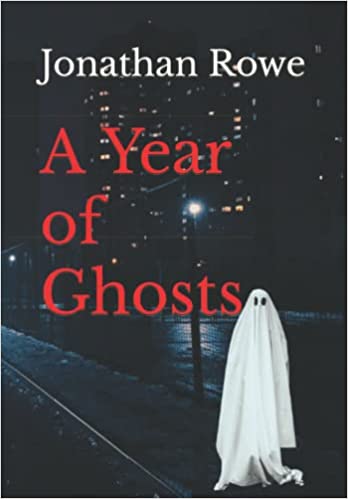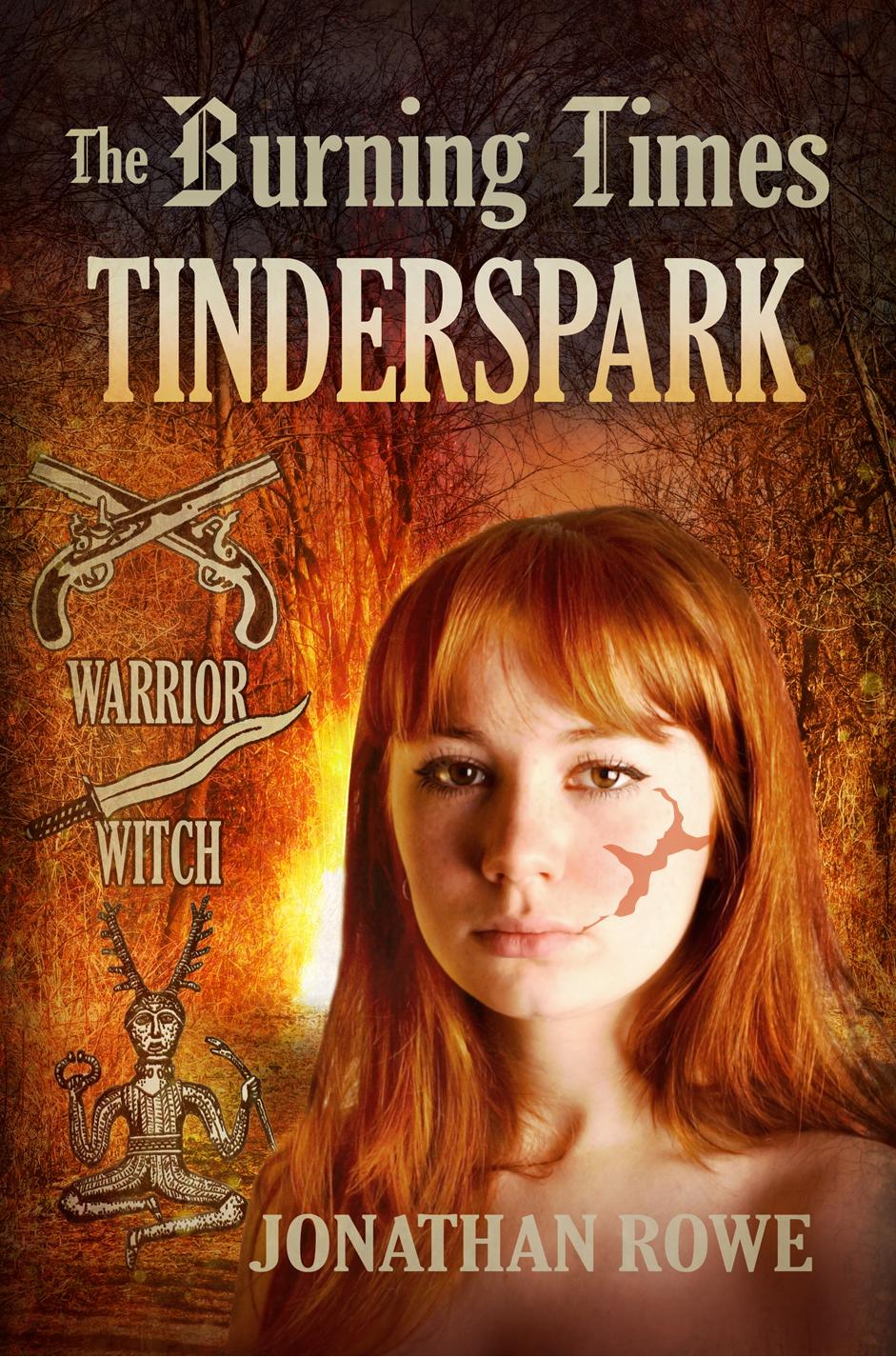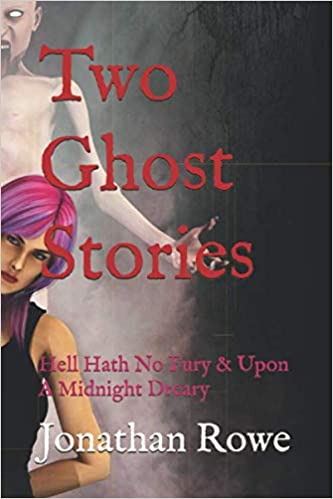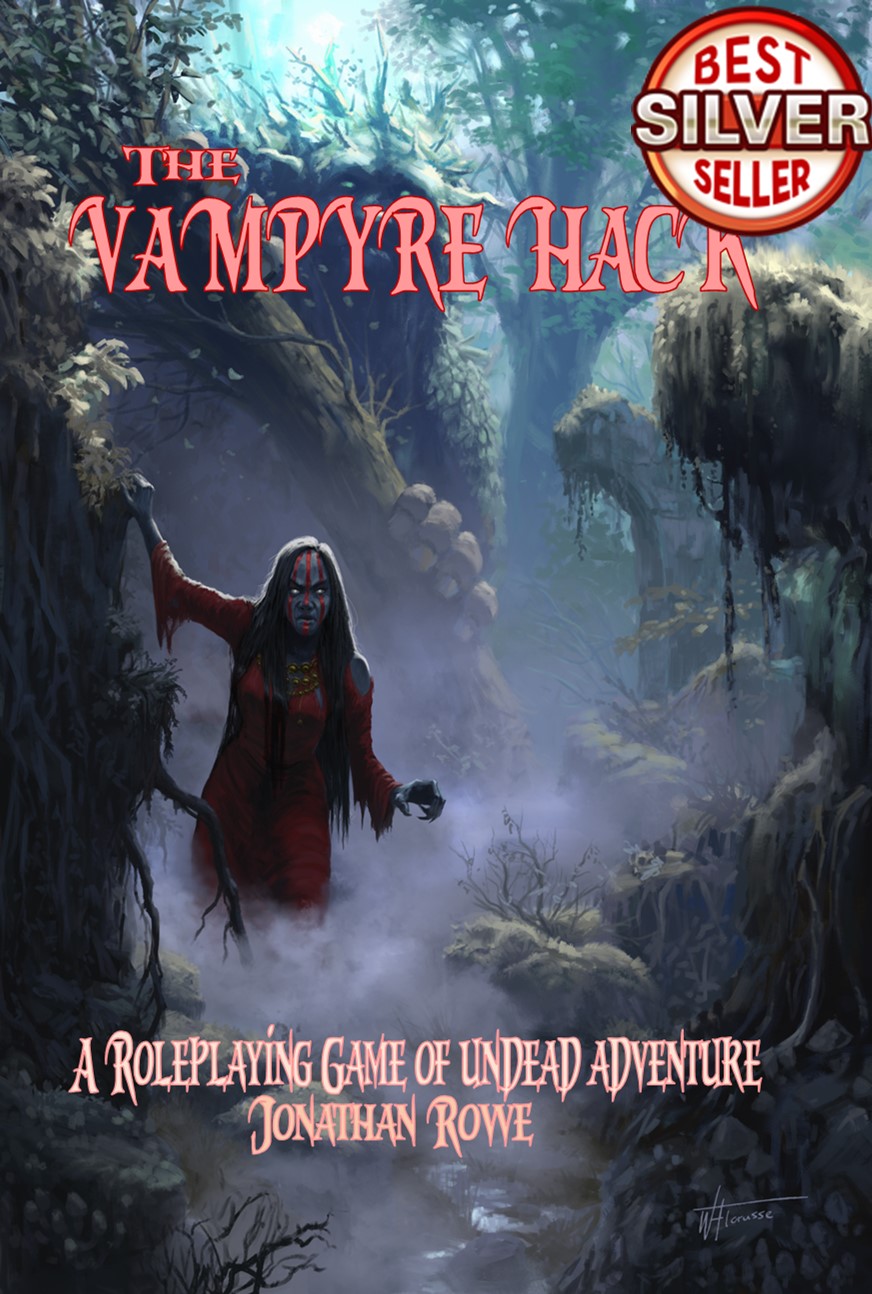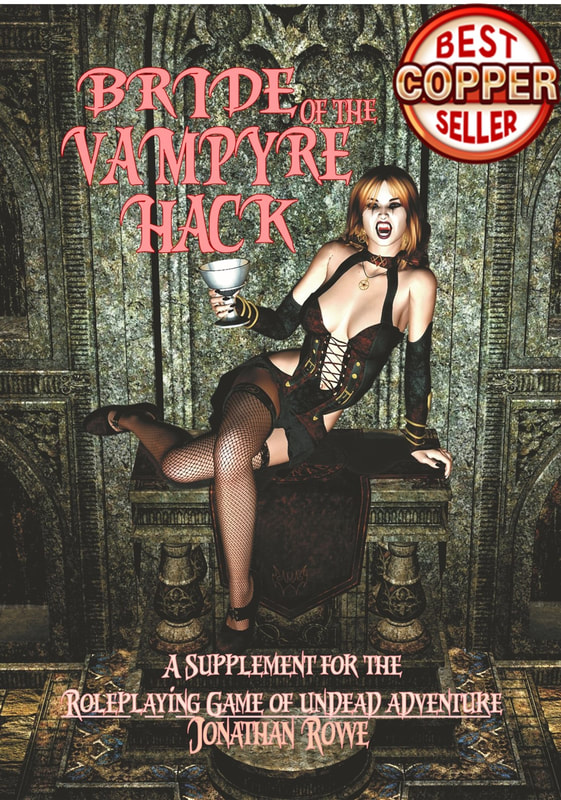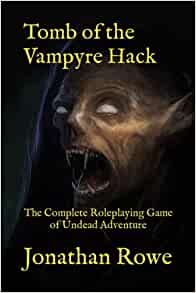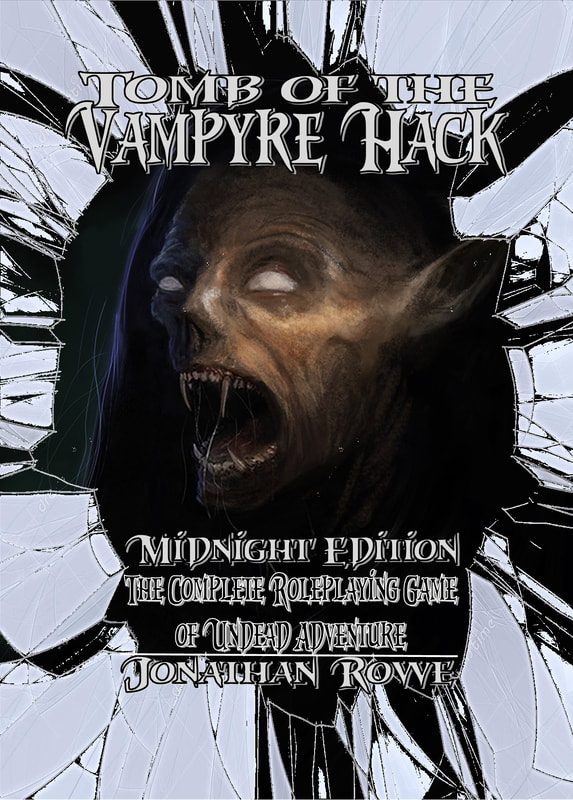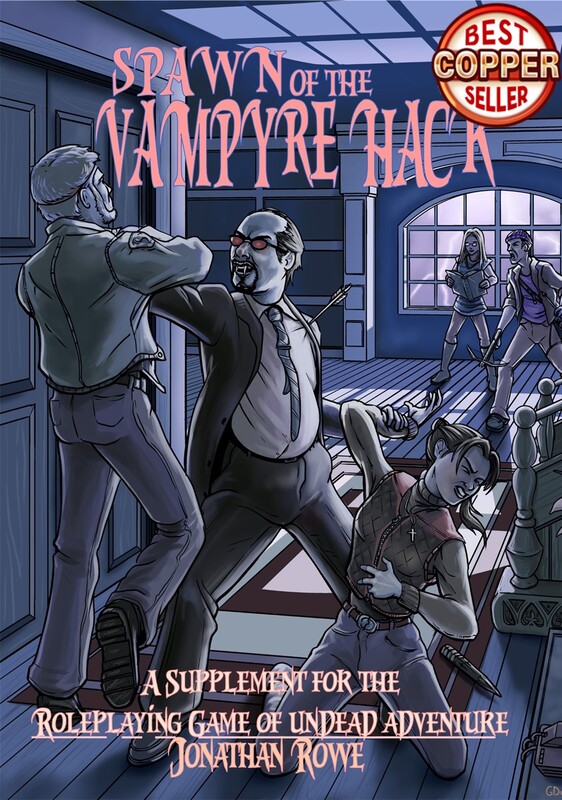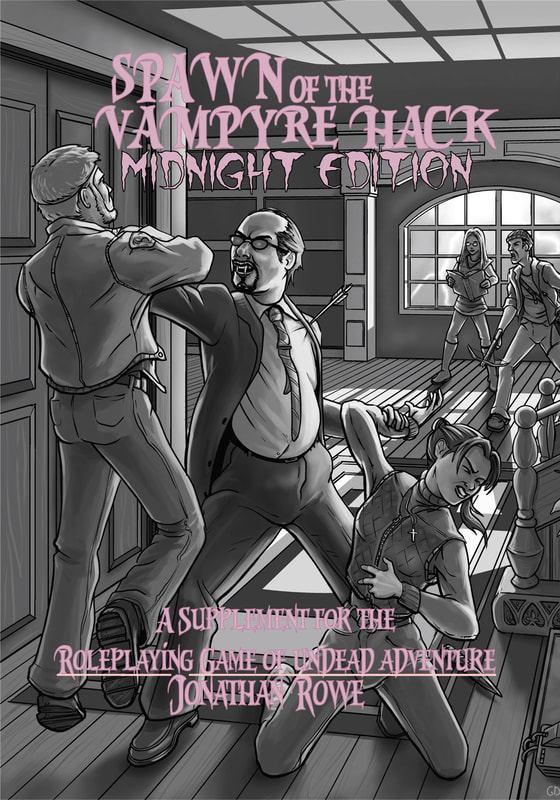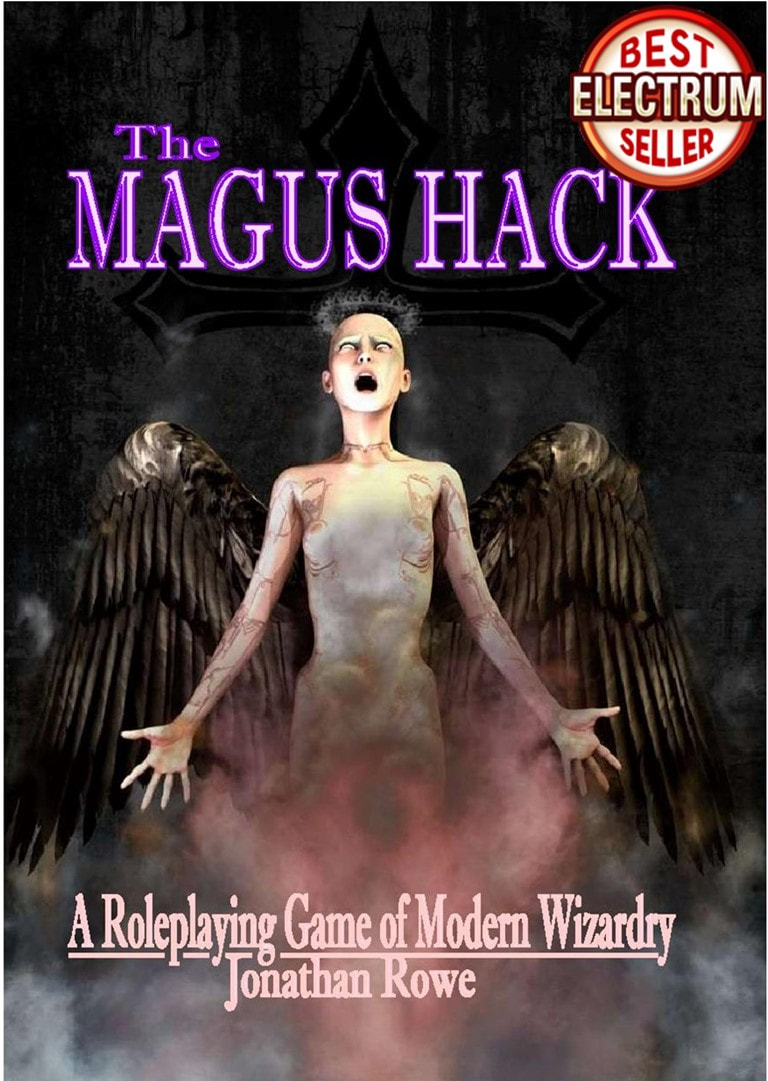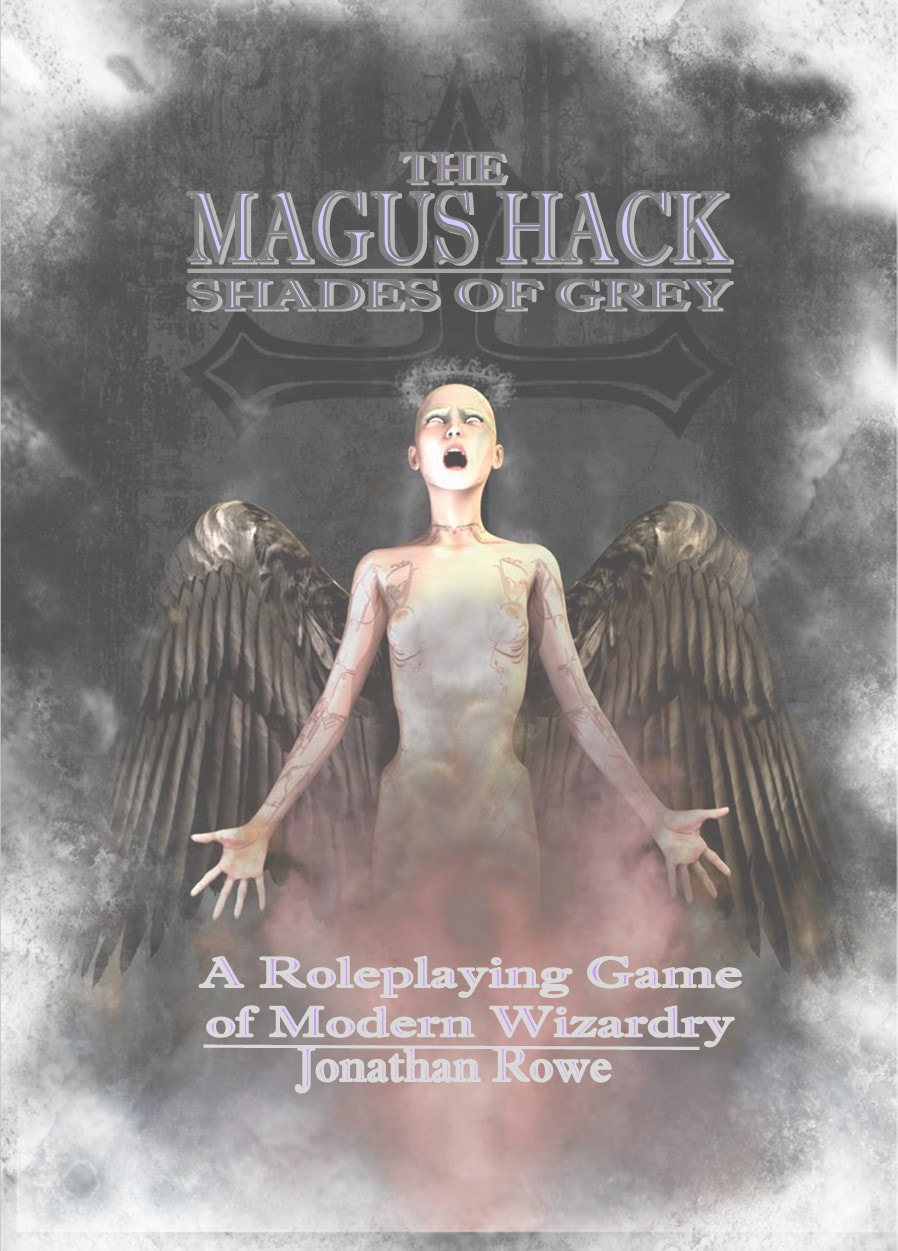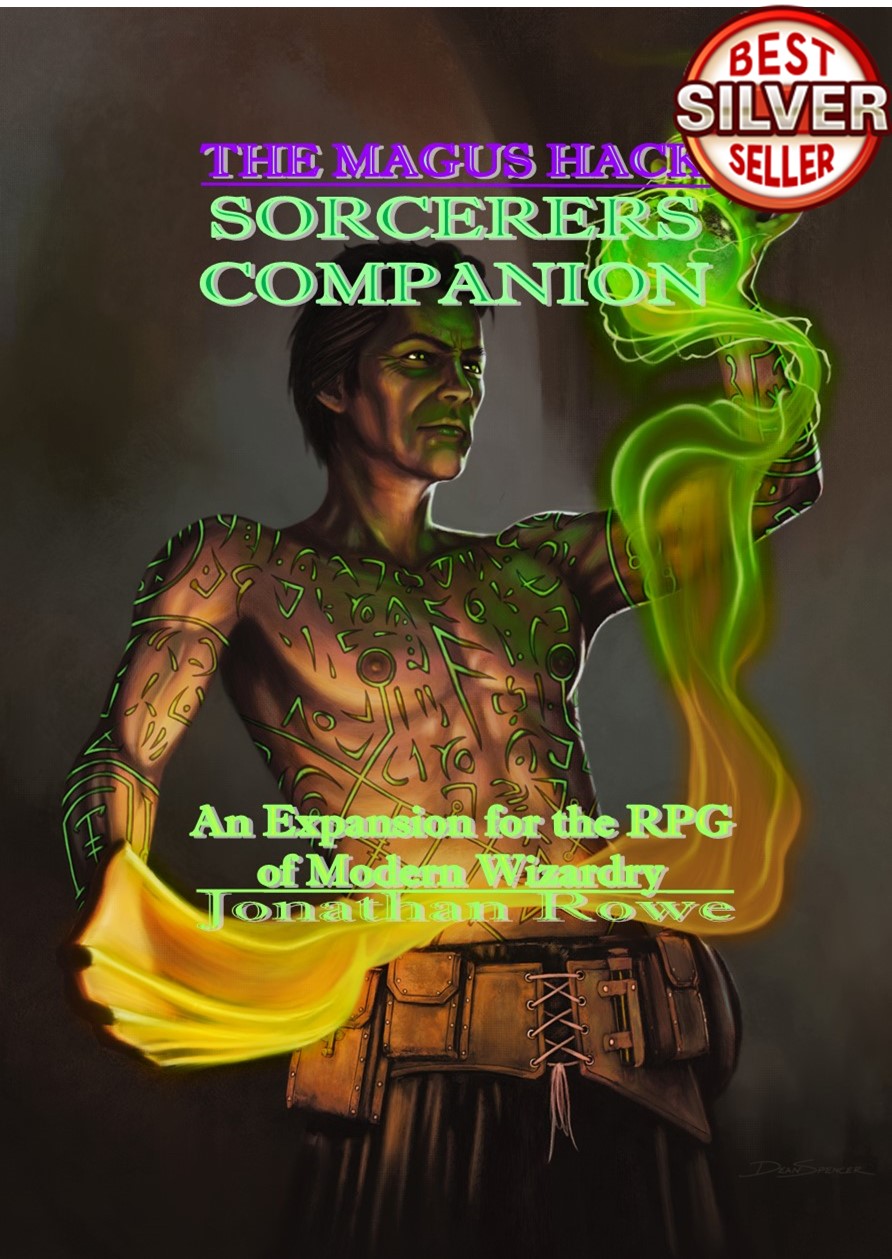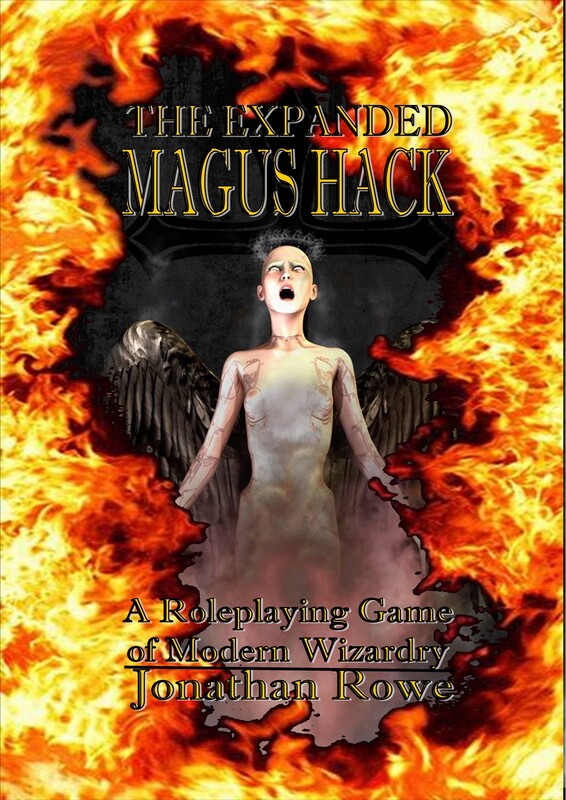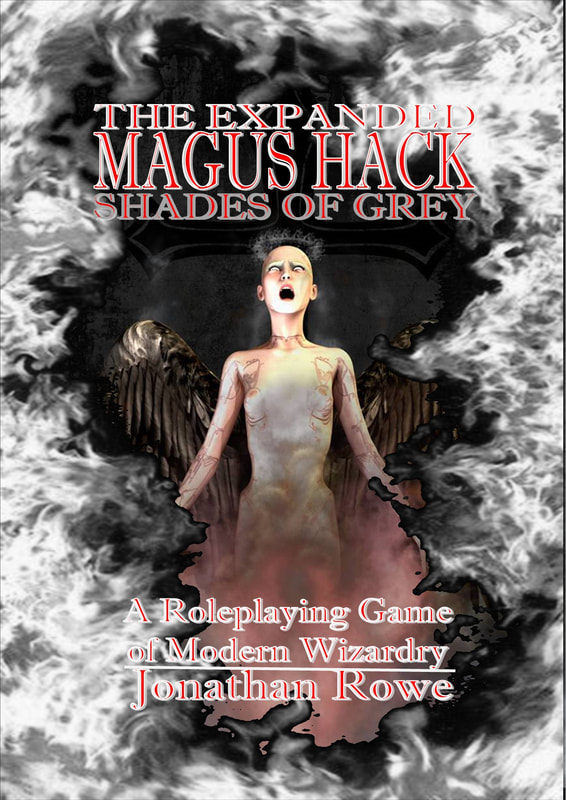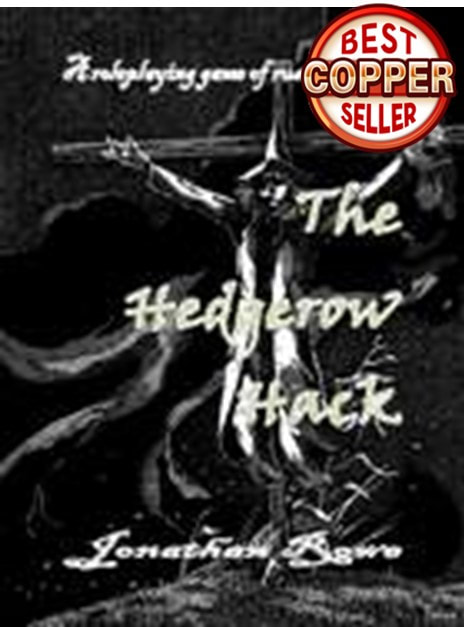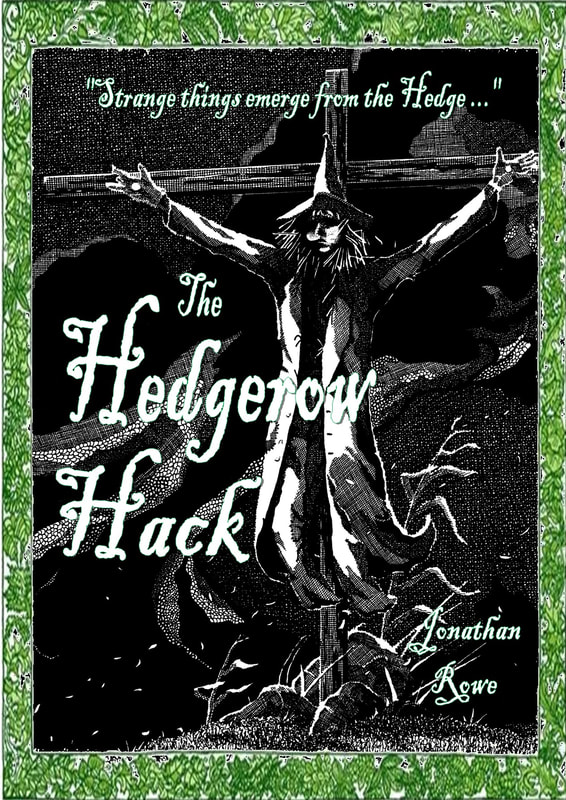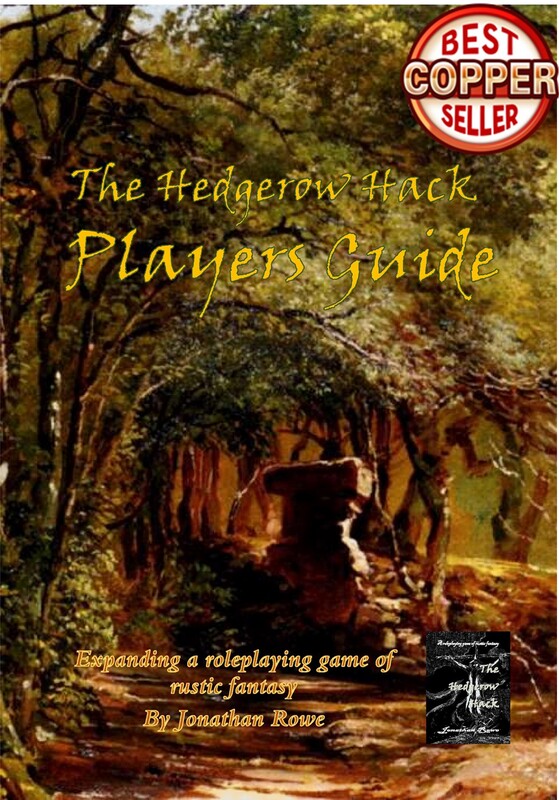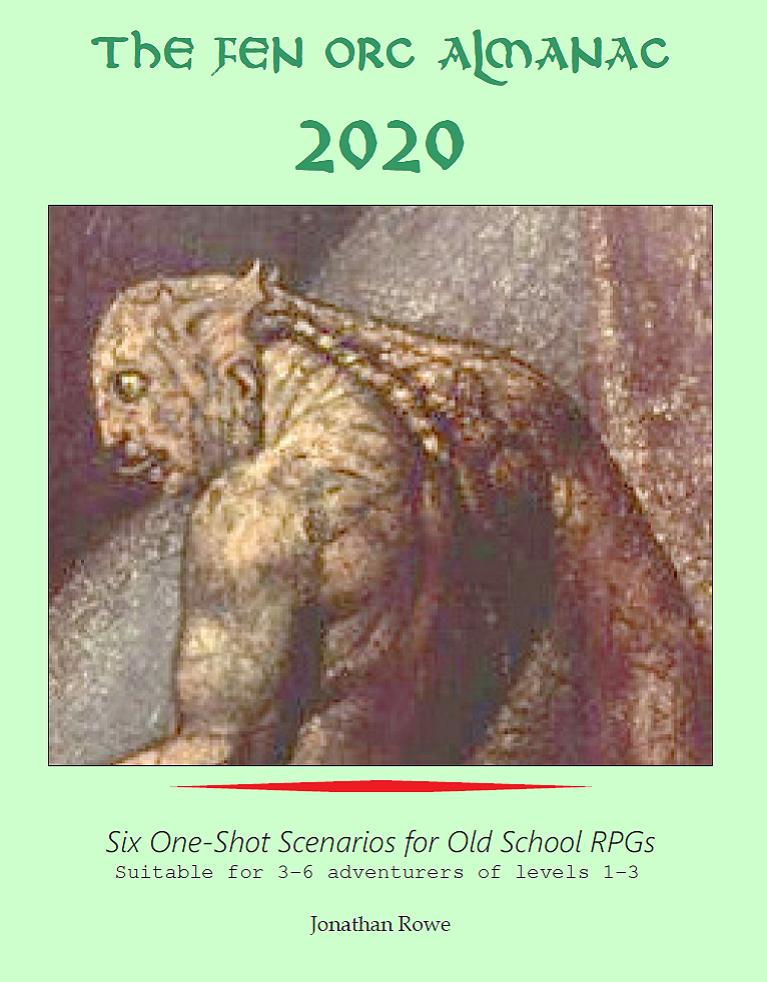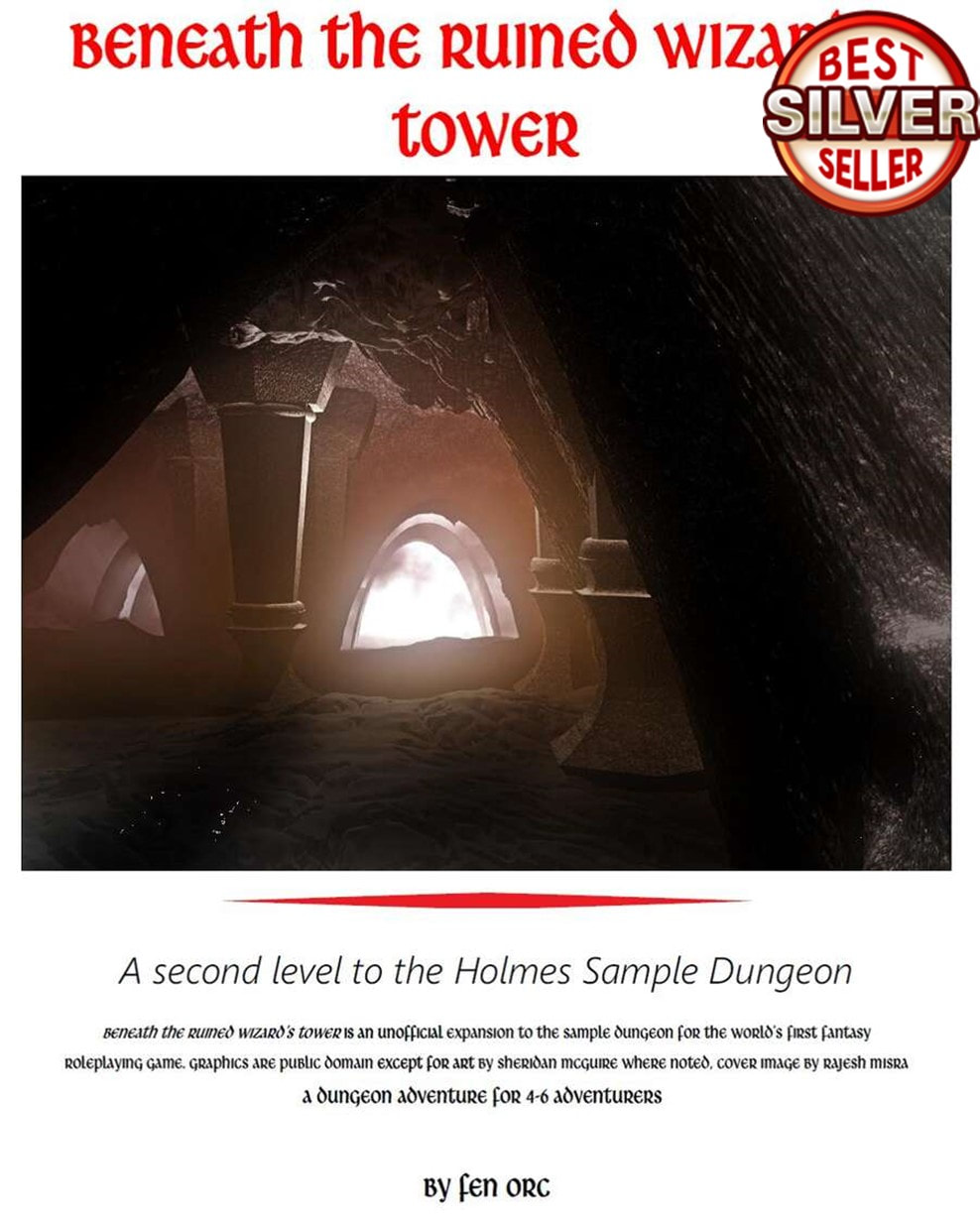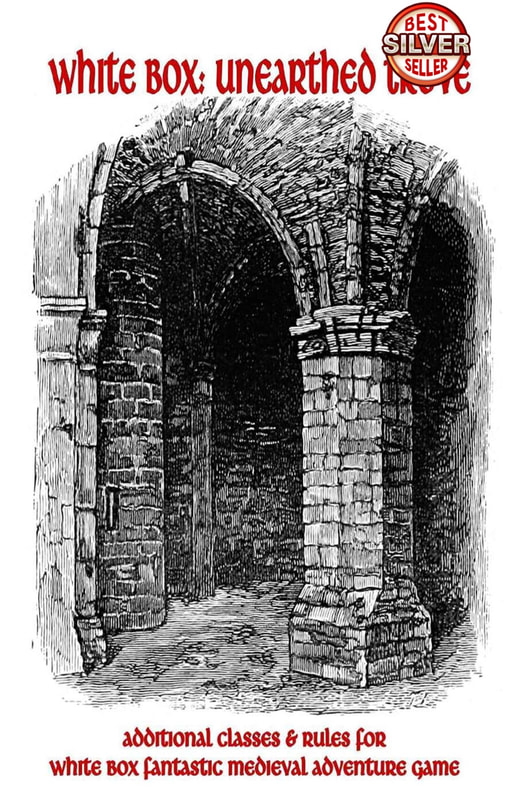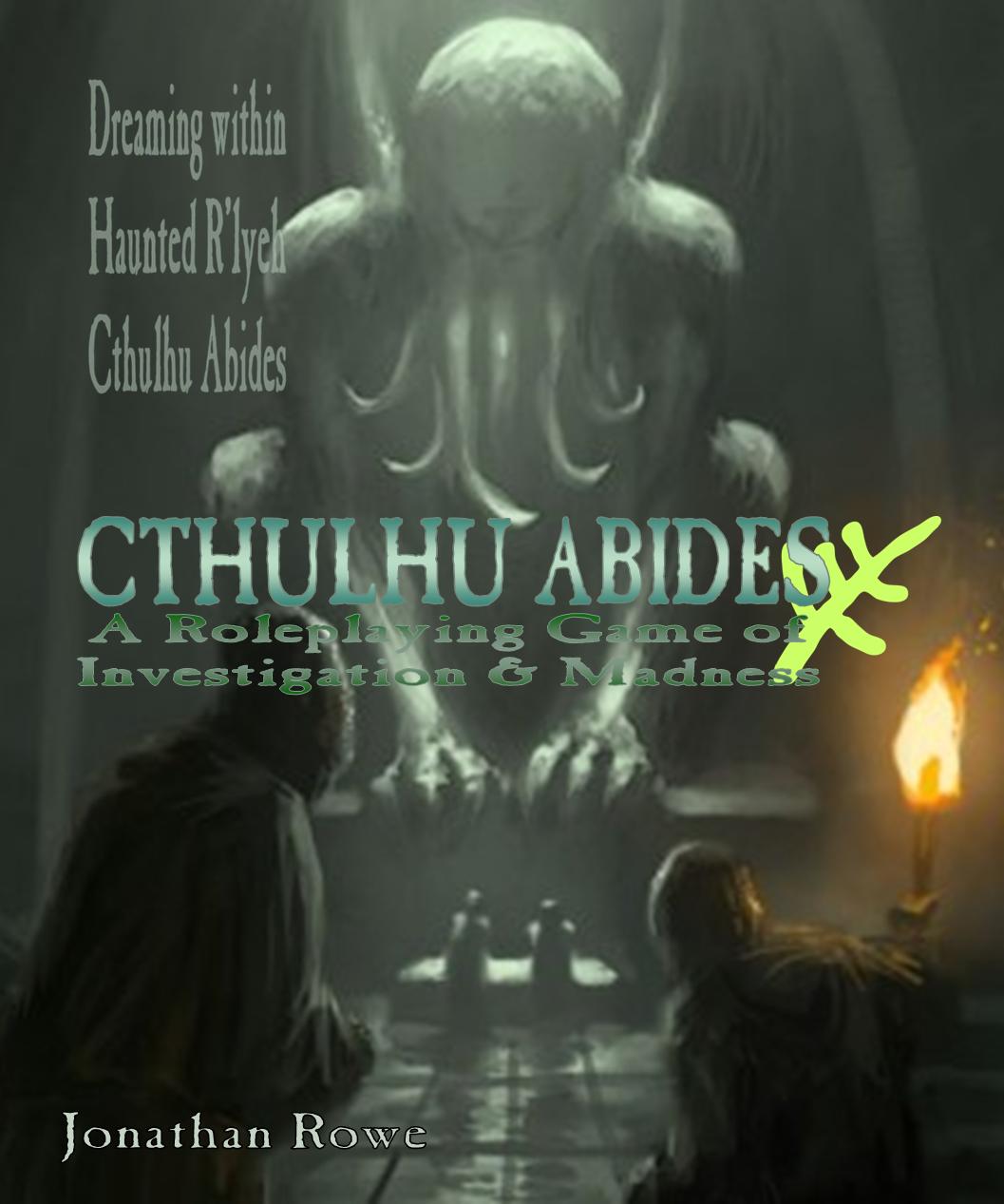|
The philosopher Epicurus claimed that "skilful pilots gain their reputation in storms and tempests." This is a pretty good template for RPG experience systems: you endure terrible things and you get better at the things you used to succeed. Some ancient history D&D originally bunched a whole load of applied skills together as a 'character class' and, when people found these templates too narrow and prescriptive, offered variant classes and sub-classes with different proficiencies. You're a thief who likes killing people: welcome, assassin! A cleric who likes nature spirits: greetings, druid! Non-weapon proficiencies (NWP) started appearing in 1985, with the Unearthed Arcana expansion that made a lot of Dragon Magazine material canonical. NWP became a major feature of AD&D's 2nd edition in 1989. However, NWP always sat awkwardly with AD&D's class system. They're really different approaches to doing the same thing and they get in each other's way. Meanwhile, D&D's glamorous cousin Runequest (1978) went a different way. Runequest abandoned character classes (well, almost: Shamans and Rune Lords inserted themselves) and defined PCs entirely by their skills. The system, which acquired a life of its own as Basic Roleplaying (1980) and undergirds Call of Cthulhu (1981), shames D&D with its simplicity. All skills (from swinging a sword or parrying a blow to tracking trolls or leaping chasms) are values on a 0-100 scale and you test them by rolling d%, looking to roll equal to or under your skill. Succeed and you get an 'experience check' against that skill. At the end of the session or adventure, roll d% for each checked skill and if you roll higher then the skill increases. The point about rolling higher is important. Starting PCs have low skills and fail most of their rolls but if they succeed then they are very likely to improve: if your Sneak skill is 10% you will fail 9 times out of 10, but if you succeed you check the skill and you only need to roll higher than 10 on d% for it to increase. Conversely, experienced characters succeed often but find it hard to improve: with Sneak 90% you rarely fail to be stealthy but you need to roll 91-00 to increase the skill any further. Almost all later RPGs took a position somewhere between these poles. Rolemaster (1980) offered classes AND skills, with the skills multiplying with every expansion. Later games often offered character classes as mere templates, enabling players to invest in a coherent and thematic set of 'class skills' and perhaps penalising out-of-class skill choices by making them more expensive to acquire or improve or else privileging in-class skills by having them advance faster. This maintained the convenient 'meta' of character classes ("I'm a fighter" and "I'm a rogue") to speed up character creation and simplify adventures while allowing players to customise their PCs. In many '90s RPGs, character classes were replaced by factional allegiances that worked in the same way. For example, Vampire: the Masquerade (1991) offered signature powers for different Clans then allowed the players to put together any permutation of skills and abilities. How Forge does it: Basic Skills Ron Edwards (2002) points out that 'fantasy heartbreakers' like Forge invariably claim to be "innovative" when in fact they are just reinstating alternative systems from the beginnings of the roleplaying hobby. There's nothing new under the sun, and Forge really just reinstates Runequest/Basic Roleplaying. However, even when rules aren't original, they can still be elegant. Forge takes familiar materials but puts them together well. Forge PCs have a number of skill slots equal to the sum of their Intellect+Insight - 15 on average. Basic Skills can be bought which confer unvarying advantages, as opposed to Percentage Skills which confer a chance of success with the possibility of failure. Basic Skills are more like abilities than skills. If you know Binding you can use binding kits to treat wounds; if you know Horsemanship you can attack at a penalty while mounted. The Exceptional Characteristic Basic Skills let you add +1.0 to a characteristic; Exceptional Intellect and Exceptional Insight cost 2 slots because they might cause you to recalculate the number of skill slots you are entitled to. There are some oddities here. History is a Basic Skill which means the Referee will give you any information you need about the history of an area, no roll needed. Similarly Hunting gives you a flat 50% chance of foraging food for the next 2-5 days in exchange for 6 hours of hunting and reducing travelling rates by a quarter. Most games would make these Percentage Skills, with the possibility of failure but also the option to improve them. These Skills reflect Forge's assumptions. It's a game of going down dungeons and killing things, not making long wilderness journeys or researching historical mysteries. Activities outside of the dungeoncrawling paradigm are marginalised, expressed as "yeah you did it" abilities that move the plot along. Why should a failed History roll mean you never hear about the dungeon? Why should a failed Hunting roll mean you struggle to locate the dungeon? Ron Edwards finds this truncated perspective laughable, pointing out that, for heartbreaker RPGs, dungeon adventuring is "not only the model, but the only model for these games' design - to the extent of defining the very act of role-playing." But the thing is, I don't mind about that. If I'm going to play a dungeoncrawl game, I want a dungeoncrawl system. Forge's laser-like focus on creating characters for dungeoneering is only a flaw if you believe this RPG ought to have loftier ambitions. But why should it? Movin' on up: Percentage Skills With Percentage Skills, we're on familiar territory. The skill's score is your chance of using it successfully on d% and, once used successful and checked, you try to roll above the skill to improve it with experience. Forge has a few contributions of its own. In Basic Roleplaying and similar systems, everyone gets access to every skill, many of which start with lowly scores (e.g. Stealth 10%, Disguise 01%) to which skill points are added. In Forge, if you don't select a Percentage Skill then you simply cannot do it at all and the ones you select have a starting value set by the sum of two characteristics (e.g. Blind Fighting is Dexterity+Awareness), which is a modest figure (average 15%). This makes for simplicity at the risk of absurdity. What, I didn't select Climbing so I can't even try to climb the castle wall? Without Hiding I cannot even try to hide myself from that patrol - I have to just stand there, out in the open? In the context of '90s and early C21st RPGs, this is maddening stuff. In the context of Old School Revival RPGs, it's less of a problem. OSR emphasises Referee judgement over rules and skills. Let the Climbers roll their skill (baseline Dexterityx2%) and give everyone else a lesser chance (baseline Dexterity%) as you see fit. Forge also lacks a system for scaling skill success against difficulty level: what about smooth walls and observant guards? The Referee is invited to raise or lower skill chances based on the situation. For OSR Referees, this is plain sailing. In Basic Roleplaying you check a skill for improvement the first time you succeed at it, but in Forge you check it every time you succeed at it. You could end up with a LOT of checks , especially in a skill like Leadership that a PC might use at the start of every combat encounter or Open Locks that might be used dozens of times. This partly gets round one perennial problem in percentage skill systems: the Lockpickers' Queue. This is a phenomenon where, faced with a locked door or chest, the party members with the worst lockpicking skills try to open it first, with the expert lockpickers stepping in only when everyone else fails. Why? Because the poor lockpickers might succeed by fluke and, if they do, they get to check their skill and are very likely to improve it; the experts are almost guaranteed to succeed and don't need the skill check so badly: they're likely to fail to improve. It's a clunky insertion of meta-knowledge into roleplaying behaviour. In Forge, you can check a skill multiple times, so the expert has an interest in using his skill successfully because, with enough checks, he should manage to raise it a little. Some of the Percentage Skills raise problems. Tactics is a skill you may use every round in combat to boost your DV2 against flank attacks. Since there's no penalty for using it, PCs will use it every round. Does that entitle you to dozens, maybe hundreds of checks? Not quite. You only get a check when the skill is used significantly, when there's "something to gain from it" (p20). The rulebook doesn't clarify but presumably to gain a check in Tactics you have to boost your DV2 on a turn when you suffer an attack against your DV2. I'm not sure whether it should be an attack that misses as well. Either way, you're rolling this every round but only checking it when you get attacked - grr-r, book-keeping... Better, I think, to treat Tactics like Leadership: it's a roll you make at the start of combat, if it succeeds it gets a check and the benefit lasts for the entirety of the encounter. Missile Evasion lets you add your Awareness bonus (if you have one) to your DV2. This is another fiddly skill and, in any event, the rule that missiles attack DV2 ought to be scrapped. What should Missile Evasion do instead? The rule as-written means that, when you get shot at, you can try to hike your DV by a couple of points. One option is to make it function just like Giant-Fighting: possession of the Skill adds +1 to your DV against these attacks and a successful roll adds +5! Another option is to make Missile Evasion a Leveled Skill that benefits your DV1 against missile attacks you can see coming. Then there's Jeweler: why is this even a Percentage Skill at all? If History is a Basic Skill ('You're a historian: you know the history') then why is Jeweler something you have to make a skill test to do, instead of just automatically identifying gems ('It's a big diamond, probably worth 500gp')? The answer is another of Ron Edwards' "unquestioned assumptions": you find jewels in dungeons but you don't find historical curiosities. If we take this skill at face value it means that when PCs find jewels and fail to evaluate them, they're just 'Jewel #1' and 'Jewel #2' and have to be randomly assigned at the end of the adventure. Players get their jewels evaluated when they sell them: 'Cool, Jewel #1's worth 500gp!' or ''Drat! Jewel #2's worth 5gp!' There's a merry lottery to this, but rational players will sell the jewels en masse and split the gold they got for them, which raises the question of why it's worth evaluating jewels in the dungeon at all! It would make sense if Jeweler was a skill at cutting and polishing gems to increase the value of jewellery (say, by 20%). Or if jewels lost 10% of their value when converted to cash unless a PC Jeweler had previously evaluated them. Otherwise, this Skill needs to be reassigned to the Basic Skills to be worth investing in. A similar case could be made for reassigning Plant ID and Track ID to Basic Skills. If someone's got the skill, they should be able to tell peysha mold from jilda weed. The idea of having the skill but rolling badly and failing to recognise a herb that's on every PC's shopping list is absurd. One step at a time: Leveled Skills Leveled Skills are the smartest feature of Forge's three-legged stool and, if the game needs further development, then all the skills should probably be revised as Leveled Skills. It's just the best system the game offers. It's characteristic of fantasy heartbreakers that they don't try to present a unified mechanism, retaining instead D&D's 'diff'rent rules for diff'rent rolls' approach, but Forge comes closer than most to the d20 system D&D evolved into in 2000, just 2 years after Forge was published. Leveled Skills start at 1st level and go up, potentially to 12th level, possibly higher. They are mostly combat skills like Melee Weapon and Missile Weapon, Melee Assassination and Missile Assassination, Backstabbing and Brawling, but they also include Magic. The level translates directly into your Attack Value (AV) and the level of spells a Mage can cast. Leveled Skills also have a percentage score that usually starts at a characteristic multiplied by 4 or a pair of characteristics doubled (so averaging 30%). This gets checked in the same way as Percentage Skills but increases in the opposite way: you have to roll under the score on d%, so it starts difficult but gets easier and easier as the score rises. When it hits 100% you go up a level and the score drops to its base level again, minus 4%. Eventually it drops to 0% and at that point you cannot increase it any further. This means an average character who starts with a skill at 30% will get to 8th level in the skill then be unable to advance any further. The Elvish racial benefit of adding +25% to the Magic Skill doesn't just mean the character advances faster (Joe Average Elf starts at 55%) but has a higher level limit (14th!) before the base score drops to 0% or less. If the game were to be revised,it would be a good idea to gives each race a +25% bonus to a particular Leveled Skill, giving them a head start and extending their potential in the future. You can probably tell, the Leveled Skills mechanic intrigues me. I like the way your starting score also contains the limits of your ultimate advancement; I like how you start improving slowly then speed up, but when you go up a level you drop to a lower starting point and have to struggle longer before advancing. But what about the loot? In D&D, treasure is really important. Loot equates to experience points, so the thrill of finding a sack of gold or a string of pearls is the excitement of knowing this brings you closer to your next level-up. In skill-based RPGs like Forge, this connection is broken. You increase skills by using them, not acquiring money. But why, then, are adventurers venturing into dangerous dungeons if it's not for hidden treasure? Surely there are safer and more certain ways of increasing your skills - like military service, for example. What's their motivation? One point needs making and that is that the de-emphasising of treasure can be a good thing. In converting a D&D adventure to Forge, I halve the treasure, maybe cut it even more. No need for chests filled with thousands of coins. Money still has a use in Forge. Mages have to buy spell components and most of these are priced beyond the reach of starting characters. You go down into dungeons to get the money to access your full spell list. Armour and weapons are more expensive than in D&D and, unlike in D&D, they break and have to be replaced. Purchasing extra binding kits and armour repair kits makes for extra resilience down in the dungeon. Equipment and shopping in Forge are considered in another post. Nonetheless, adventurers quickly have more money than they know what to do with and they gain no benefit from it in terms of their powers and abilities. It's tempting to house rule tuition costs before a PC can level up a skill (say, 100gp times the square of the new skill level, so getting from 1st to 2nd level costs 400gp, from 2nd to 3rd costs 900gp, and so on).
0 Comments
Leave a Reply. |
30 Minute Dungeons
Essays on Forge
FORGE Reviews
OSR REVIEWS
White Box
THROUGH THE Hedgerow
Fen Orc
I'm a teacher and a writer and I love board games and RPGs. I got into D&D back in the '70s with Eric Holmes' 'Blue Book' set and I've started writing my own OSR-inspired games - as well as fantasy and supernatural fiction.. Archives
July 2024
Categories
All
|

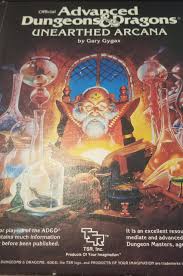
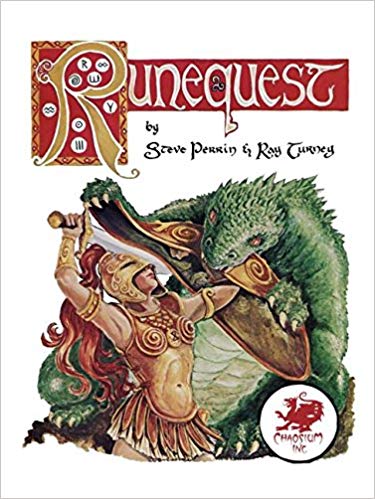
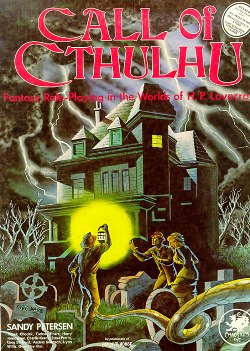
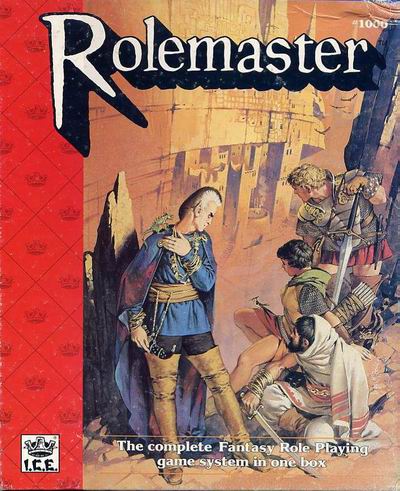
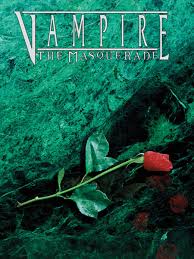
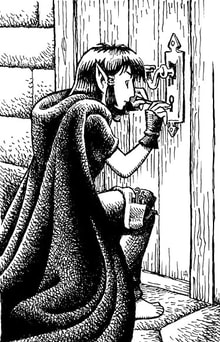

 RSS Feed
RSS Feed
